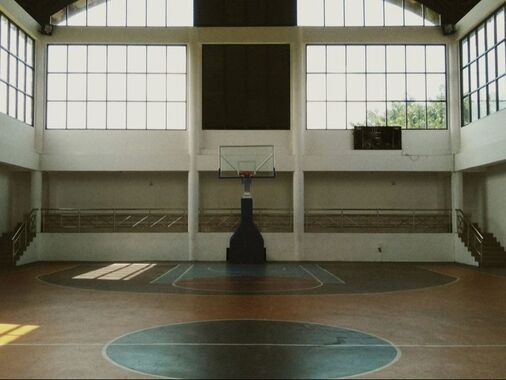|
In 1965 I started Magic Circle Theatre, situated in a poor neighborhood of Wilmington, Delaware. From the beginning I recruited urban, suburban, Black, white, young, and older people to participate in any way they chose. I wrote and directed plays for children. Volunteers helped design sets and costumes. Our “ticket” was an ice cream cup top with details of the performance printed on it. The cost was 25 cents for adults, 10 cents for kids. At the entrance, the ticket taker would twist off the little tag and direct the person down to the performance space in the basement. When the actors asked who would watch their belongings during the shows as there was no space that could be locked, I thought about a group of older boys who had been hanging around, who I’d invited to watch rehearsals and give me feedback. One of them, seemingly the leader, had expressed surprise. “We’re usually kicked out, not invited in.” I shrugged and told them they were welcome. About five or six, sometimes more, came and sat, watching as the play evolved from improvisation and my writing. Initially they hesitated before making a comment, but when they realized I took their suggestions seriously, they watched more intently and were freer voicing their thoughts and ideas. At the end of our first dress rehearsal I asked the group if they’d be willing to watch the actors’ belongings as well as help people down the narrow staircase leading to the performance area. Their looks of surprise seemed odd. They’d been helpful and respectful. What was the problem? I didn’t ask. They talked among themselves and then agreed they would help wherever it was needed. The afternoon of the first show, the group arrived about an hour before the performance to ask what I wanted them to do. A few of them volunteered to escort people needing help down the stairs to whatever seats were available. The leader of the group and two others offered to watch the room where the performers had left their valuables and clothing. Three others placed themselves around the performing area in case anyone needed help. I invited them to join the cast party after the second performance. All went well. No one fell down the stairs. Nothing went missing from the room filled with the performers’ belongings and valuables. After the cast party, after the cleanup, after everyone had left but the Director of the Settlement House and me, he said, “I think you should know that the boys you asked to help are part of a notorious gang.” I shrugged. How do you decide who to ask for help?
2 Comments
Reply
Marlene Simon
3/6/2024 03:21:44 pm
Brave, kind and trusting. Your students and colleagues were so lucky to have you. Talented, creative, supportive and trusting - what a great combination. The people whose lives you have touched must be in the thousands.
Reply
Leave a Reply. |
Monthly StoriesStories inspired by world tales to challenge and comfort. Archives
July 2024
Categories |
Copyright © Nancy King 2020 | Site Design by Angulo Marketing & Design
|
|
Nancy King is a widely published author and a professor emerita at the University of Delaware, where she has taught theater, drama, playwriting, creative writing, and multidisciplinary studies with an emphasis on world literature. She has published seven previous works of nonfiction and five novels. Her new memoir, Breaking the Silence, explores the power of stories in healing from trauma and abuse. Her career has emphasized the use of her own experience in being silenced to encourage students to find their voices and to express their thoughts, feelings, and experiences with authenticity, as a way to add meaning to their lives.
|


 RSS Feed
RSS Feed